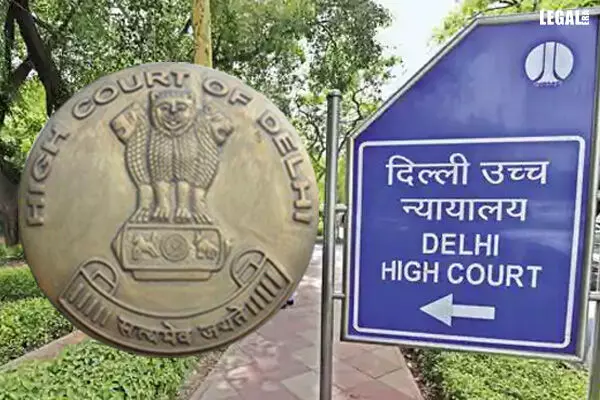- Home
- News
- Articles+
- Aerospace
- Artificial Intelligence
- Agriculture
- Alternate Dispute Resolution
- Arbitration & Mediation
- Banking and Finance
- Bankruptcy
- Book Review
- Bribery & Corruption
- Commercial Litigation
- Competition Law
- Conference Reports
- Consumer Products
- Contract
- Corporate Governance
- Corporate Law
- Covid-19
- Cryptocurrency
- Cybersecurity
- Data Protection
- Defence
- Digital Economy
- E-commerce
- Employment Law
- Energy and Natural Resources
- Entertainment and Sports Law
- Environmental Law
- Environmental, Social, and Governance
- Foreign Direct Investment
- Food and Beverage
- Gaming
- Health Care
- IBC Diaries
- In Focus
- Inclusion & Diversity
- Insurance Law
- Intellectual Property
- International Law
- IP & Tech Era
- Know the Law
- Labour Laws
- Law & Policy and Regulation
- Litigation
- Litigation Funding
- Manufacturing
- Mergers & Acquisitions
- NFTs
- Privacy
- Private Equity
- Project Finance
- Real Estate
- Risk and Compliance
- Student Corner
- Take On Board
- Tax
- Technology Media and Telecom
- Tributes
- Viewpoint
- Zoom In
- Law Firms
- In-House
- Rankings
- E-Magazine
- Legal Era TV
- Events
- Middle East
- Africa
- News
- Articles
- Aerospace
- Artificial Intelligence
- Agriculture
- Alternate Dispute Resolution
- Arbitration & Mediation
- Banking and Finance
- Bankruptcy
- Book Review
- Bribery & Corruption
- Commercial Litigation
- Competition Law
- Conference Reports
- Consumer Products
- Contract
- Corporate Governance
- Corporate Law
- Covid-19
- Cryptocurrency
- Cybersecurity
- Data Protection
- Defence
- Digital Economy
- E-commerce
- Employment Law
- Energy and Natural Resources
- Entertainment and Sports Law
- Environmental Law
- Environmental, Social, and Governance
- Foreign Direct Investment
- Food and Beverage
- Gaming
- Health Care
- IBC Diaries
- In Focus
- Inclusion & Diversity
- Insurance Law
- Intellectual Property
- International Law
- IP & Tech Era
- Know the Law
- Labour Laws
- Law & Policy and Regulation
- Litigation
- Litigation Funding
- Manufacturing
- Mergers & Acquisitions
- NFTs
- Privacy
- Private Equity
- Project Finance
- Real Estate
- Risk and Compliance
- Student Corner
- Take On Board
- Tax
- Technology Media and Telecom
- Tributes
- Viewpoint
- Zoom In
- Law Firms
- In-House
- Rankings
- E-Magazine
- Legal Era TV
- Events
- Middle East
- Africa
Court under Section 27 A&C Act Cannot Determine the Admissibility, Relevancy, Materiality, and Weight of Any Evidence: Delhi High Court

Court under Section 27 A&C Act Cannot Determine the Admissibility, Relevancy, Materiality, and Weight of Any Evidence: Delhi High Court
Justice Sachin Datta has observed that under Section 27 of the Arbitration and Conciliation Act, 1996, (Arbitration Act) the court is prohibited from assessing the admissibility, relevance, materiality, and weight of any evidence. Such an action would be deemed impermissible interference with the proceedings of the Tribunal.
The petitioner chartered the vessel MV PEACE GEM to transport cargo from a port in the United States to ports in India. The respondent, Uniper Global Commodities, the owner of the vessel, initiated arbitration under the rules of the Indian Council of Arbitration due to disputes arising between the parties. The respondent claimed demurrage charges for the vessel while it was at a port in India. The petitioner contested this claim, stating that the vessel had infrastructural damages, particularly damage to the pilot ladder, which rendered it unfit for berthing.
The petitioner requested approval from the arbitral tribunal to seek the court’s assistance under Section 27 of the Arbitration Act to present evidence from a Kolkata Port Trust officer. The Tribunal granted this request. Subsequently, the petitioner filed a petition under Section 27 before the Delhi High Court. The petitioner argued that the respondent’s denial of the email’s authenticity warranted testimony from an independent third party, highlighting the tribunal’s discretion under Section 19 of the Arbitration Act.
The respondent argued that orders under Section 27 should not be issued if the arbitral tribunal’s decision lacks legal comprehension or shows insufficient consideration. The respondent insisted on a reasoned order to permit such a request, asserting that the petitioner did not adequately demonstrate the evidence’s relevance.
The High Court emphasized that orders of an arbitral tribunal are typically not overturned in a Section 27 petition, stressing that the court, when exercising powers under Section 27, is not acting as an appellate authority over the tribunal’s decision. It underscored that although the Arbitral Tribunal is not bound by procedural rules such as the Code of Civil Procedure and the Evidence Act, it is still required to form an opinion and exercise discretion when allowing the examination of a witness.
The High Court further stressed that it does not have the authority to initially determine the relevance or materiality of the evidence sought by the petitioner. The powers vested in the Court under Section 27 are non-adjudicatory. It clarified that the adjudicative process should be conducted by the Arbitral Tribunal, the forum chosen by the parties. The Court made a clear distinction between Section 19(4) and Section 27 of the Arbitration Act, highlighting that Section 27 is designed to aid the Court in obtaining evidence. It affirmed that the Court’s role is to ensure adherence to its jurisdiction and regulations regarding the collection of evidence.
Consequently, the Court held that in utilizing its authority under Section 27, it cannot assess the admissibility, relevance, materiality, or weight of any evidence, as such actions would constitute impermissible interference with the proceedings of the Tribunal. The court dismissed the petition and directed the Arbitral Tribunal to assess, even if only on a prima facie basis, the relevance or materiality of the evidence sought to be presented by the petitioner before granting permission for the petitioner to seek assistance from the court in obtaining evidence.



